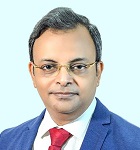Admission to PhD Programmes in HSS
 The Department of Humanities and Social Sciences offers a PhD programme in each of its five disciplines: English (Literature, Linguistics, and English Language Teaching), Fine Arts, Philosophy, Psychology, and Sociology. However, please note that some disciplines may not advertise for PhD applications in a given round of admissions. Please see the most current advertisement at http://www.iitk.ac.in/doaa/pgadmission.htm to see if the discipline to which you would like to apply is accepting applications.
The Department of Humanities and Social Sciences offers a PhD programme in each of its five disciplines: English (Literature, Linguistics, and English Language Teaching), Fine Arts, Philosophy, Psychology, and Sociology. However, please note that some disciplines may not advertise for PhD applications in a given round of admissions. Please see the most current advertisement at http://www.iitk.ac.in/doaa/pgadmission.htm to see if the discipline to which you would like to apply is accepting applications.
Eligibility criteria for PhD Admissions in the Humanities and Social Sciences
Applications to the PhD programme in HSS are screened based on a written exam. Candidates who pass the written exam will be called for an interview.
Candidates meeting all the following criteria will be invited to appear for the exam in the discipline to which they have applied.
- A master’s and a bachelor’s degree in any subject with minimum 55% marks, or a CPI of 5.5 on a 10-point scale, in both
(or)
A bachelor’s degree in engineering or science (4-year programme) with minimum 75 percent marks or a CPI of 7.5 on a 10-point scale - One of the following, unless the applicant’s master’s degree is from an IIT with a CPI of at least 8*:
- JRF/NET certification in a relevant discipline. The NET certificate should be valid for 1 year for PhD admissions at the time of application.
- A valid GATE (Humanities and Social Sciences) score in the discipline
The distribution of marks for the written and viva exams are:
- The cut-off marks for the written exam across disciplines are: GEN/OBC: 60%; EWS/OBC-NCL: 50%; SC/ST/PwD: 40%.
- The weightage for the exam and interview is 60 (Written): 40 (Interview).
- The cut-off marks for the final selection (written examination and interview together) are: GEN/OBC: 60%; EWS/OBC-NCL: 50%; SC/ST/PwD: 40%.
*NET or GATE certification is not required if the applicant’s master’s degree is from an IIT with a CPI of at least 8 on a 10-point scale.
| Sl No. | Project No. | Principal Investigator | CO Principal Investigator | Project Title |
|---|---|---|---|---|
| 1 | GLMLIC/HSS /2014021 | TANIKA CHAKRABORTY | Gender And Employment In Central Asia | |
| 2 | HUL /HSS /2014209 | KOUMUDI PATIL | ANURAG GUPTA | Vending At Pos Model |
| 3 | HUL /HSS /2014149 | KOUMUDI PATIL | ANURAG GUPTA | Hul Code Manufacturing |
| 4 | DST /HSS /2014074 | A K SHARMA | BRAJ BHUSHAN | Psychosocial Stress Among Pregnant Women An Exploratory Cross-Sectional Survey Of Reproductive And Physical Health In A Peri-Urban India |
| 5 | GOOGLE/HSS /2014332 | KOUMUDI PATIL | NIRAJ SINHA | Google Transperency : A Desktop Plug-In Google Maps |
| 6 | ICPR /HSS /2015043 | PRASHANT BHALCHANDRA BAGAD | Gandhi'S Critique Of Modernity In Hind Swaraj: A Philosophical Study | |
| 7 | CCRY /HSS /2015057 | A K SHARMA | Yoga Camp & International Yoga Day | |
| 8 | BOSTON/HSS /2015315 | SUDHARSHANA N. P. | Learning Enhancement Programme | |
| 9 | UPRVUN/HSS /2015243 | DEEP MUKHERJEE | Socio-Economic Study On Neighbourhood Area Of Panki Thermal Power Station | |
| 10 | DST /HSS /2015394 | ARK VERMA | Dst-Inspire Investigating The Laterdization Of Attentional Processes | |
| 11 | UPRVUN/HSS /2015410 | DEEP MUKHERJEE | Socio-Economic Study On Near By Areas Of The Proposed Jawaharpur Thermal Power Project | |
| 12 | WTI /HSS /2015388 | KOUMUDI PATIL | Training On Moonj Grass Weaving | |
| 13 | UPRVUN/HSS /2015400 | DEEP MUKHERJEE | Socio-Economic Study On Nearby Areas Of The Obra Thermal Power Station | |
| 14 | IITB /HSS /2015416 | KOUMUDI PATIL | VINAY P NAMBOODIRI | Khel (Knowledge Hub For E-Learning) |
| 15 | MHRD /HSS /2016161 | MURALI PRASAD PANTA | K MURALIDHAR | Law And Economics For Solving Social, Economic And Technical Challenges |
| 16 | WIZMIN/HSS /2016146 | TANIKA CHAKRABORTY | Identification Of Clusters Of Child Labur In Uttar Pradesh And Their Characteristics | |
| 17 | DST /HSS /2016228 | ARK VERMA | DEVPRIYA KUMAR | Cogn-Ex1.0: Behavioural Workshop On Experimental Methods |
| 18 | DST /HSS /2016328 | ARK VERMA | Investigating Visual Word Procedding In Hindi | |
| 19 | IDEA /HSS /2016360 | KOUMUDI PATIL | Technical Deployment Of Digitals Games | |
| 20 | ICSSR /HSS /2016488 | SHIKHA DIXIT | A K SHARMA | Interplay Between Women'S Reproductive Health Behaviour And Socio - Cultural Milieu: A Study Of Balrampur District Of Chhattisgarh |
| 21 | UPRVUN/HSS /2017036 | DEEP MUKHERJEE | Demographic Survey Around Panki Power Plant | |
| 22 | MHRD /HSS /2016142S | BRAJ BHUSHAN | SHATARUPA THAKURTA ROY | Development Of Assistive Touch Screen Based Interface For Children With Dyslexia And Dysgraphia |
| 23 | ICSSR /HSS /2017071 | DEVPRIYA KUMAR | Sense Of Agency As Tracking Control: A Multi-Level Approach | |
| 24 | TI /HSS /2017095 | KUMAR RAVI PRIYA | Reconstructing Forgiveness And Reconciliation For Post-Violence Healing: An Ethnographistudy In India | |
| 25 | DST /HSS /2017171 | DEVPRIYA KUMAR | Role Of Intentionality In Emotion Perception And Sense Of Agency | |
| 26 | INSA /HSS /2017249 | KOUMUDI PATIL | SHIVAM TRIPATHI | Unrevelling Shringverpura: Ancient Technology For Harvesting Water |
| 27 | IHA /HSS /2017322 | KOUMUDI PATIL | Mapping Sringaverpura: An Inter-Disciplinary Research | |
| 28 | DORA /HSS /2017375 | KOUMUDI PATIL | Khel Phase Ii | |
| 29 | SARD /HSS /2018070 | SUDHARSHANA N. P. | English Remediation Material For Grade Ix | |
| 30 | IIM /HSS /2018125 | ANINDITA CHAKRABARTI | A Study Of Artisanal Entrepreneurship, Skill Development And Network Among Goldsmiths In Contemporary India | |
| 31 | MHRD /HSS /2018238 | ARK VERMA | K MURALIDHAR | 171004g03: Natural Language Processing And Big Data For Psycholinguistics |
| 32 | MHRD /HSS /2018597 | KOUMUDI PATIL | SHAKTI SINGH GUPTA | Rural Craft And Artisans Development & Rural Industrialization And Entrepreneurship Development |
| 33 | XI /HSS /2019070 | KOUMUDI PATIL | Frugal Innovation For I&T Fellows | |
| 34 | ICSSR /HSS /2018400 | PRADIP SWARNAKAR | Industry Academiacollaboration: A Comparative Study Of Iit And Univdersity System In India | |
| 35 | ICSSR /HSS /2019029 | PRADIP SWARNAKAR | Climate Energy Policy Network: A Comparative Study Of India And Japan | |
| 36 | SERB /HSS /2019488 | BRAJ BHUSHAN | Exploringfractal Dimension As A Technique To Study Facial Expressions Of Emotions |
The discipline of Sociology offers undergraduate courses for students of engineering, science and social science and runs a PhD programme in sociology.
Sociology at IIT Kanpur
 The faculty members teach and do research in varied sociological specialities. The programme grounds the doctoral students in qualitative and quantitative methods in sociology. While giving an exposure to varied fields of sociology the discipline encourages the doctoral students to engage in interdisciplinary research. The dynamic research programme specializes in the following areas:
The faculty members teach and do research in varied sociological specialities. The programme grounds the doctoral students in qualitative and quantitative methods in sociology. While giving an exposure to varied fields of sociology the discipline encourages the doctoral students to engage in interdisciplinary research. The dynamic research programme specializes in the following areas:
| Syllabus for PhD (Sociology) Entrance Examination for Applicants with Sociology Background | |
| Syllabus for PhD (Sociology) Entrance Examination for Applicants without Sociology Background |
Research Areas
- Design Culture
- Health and Illness
- Human Rights
- Social Change
- Social Demography
- Social Stratification
- Sociology of Environment
- Sociology of Science and Technology
- Sociology of Development
- Sociology of Religion
- Third Sector Research
- Urban Sociology
With a long and rich history of Philosophy discipline in the department of Humanities and Social Sciences, it offers an exciting bunch of undergraduate and postgraduate courses focusing on a broad range of interests from core philosophical approaches to contemporary and interdisciplinary aspects. Such a blend provides comprehensive dimensions to students’ overall academic and social development.
While postgraduate courses focus on the in-depth research on ancient, classical, and contemporary debates and issues in philosophical scenarios; the undergraduate courses (lectures/ tutorials) deal with a broader framework to enhance and inculcate the conceptual clarity and critical thinking among the students. The philosophical engagement allows them to revisit the arguments, phenomena, language, science at meta-level inquiries.
Philosophy at IIT Kanpur
 Our faculty broadly work in Aesthetics, Epistemology, Ethics, Evolutionary Epistemology, Existentialism, Gandhi Studies, Logic, Philosophy of Biology, Philosophy of Cognition, Philosophy of Creativity, Philosophy of Language, Philosophical Logic, Philosophy of Mind, Political Philosophy. We have a strong Ph.D. program with graduate students writing their theses on various philosophical issues. Our undergraduate courses acquaint students with a variety of philosophical perspectives, encourage them to think critically and apply them to their academic and life endeavours.
Our faculty broadly work in Aesthetics, Epistemology, Ethics, Evolutionary Epistemology, Existentialism, Gandhi Studies, Logic, Philosophy of Biology, Philosophy of Cognition, Philosophy of Creativity, Philosophy of Language, Philosophical Logic, Philosophy of Mind, Political Philosophy. We have a strong Ph.D. program with graduate students writing their theses on various philosophical issues. Our undergraduate courses acquaint students with a variety of philosophical perspectives, encourage them to think critically and apply them to their academic and life endeavours.
Welcome Message

The Department of Humanities and Social Sciences (HSS) was established in 1960 along with other departments of Science and Engineering. With an intent to sharpen the creative talents of the students and to help them evolve as better leaders and decision- makers, the institute allocated more than fifteen percent of the total UG course credits to HSS courses.
The Department has twenty-nine faculty members who teach a range of courses in English, Fine Arts, Philosophy, Psychology and Sociology. Many faculty members of HSS actively participate in the interdisciplinary postgraduate programme in Design (M. Des.) and co-supervise students of other departments as well. Besides teaching, the faculty members are involved in thesis supervision of Ph.D. scholars working in different areas...
- Read More
-Prof. Pradip Swarnakar
Head, Department of Humanities and Social Sciences








